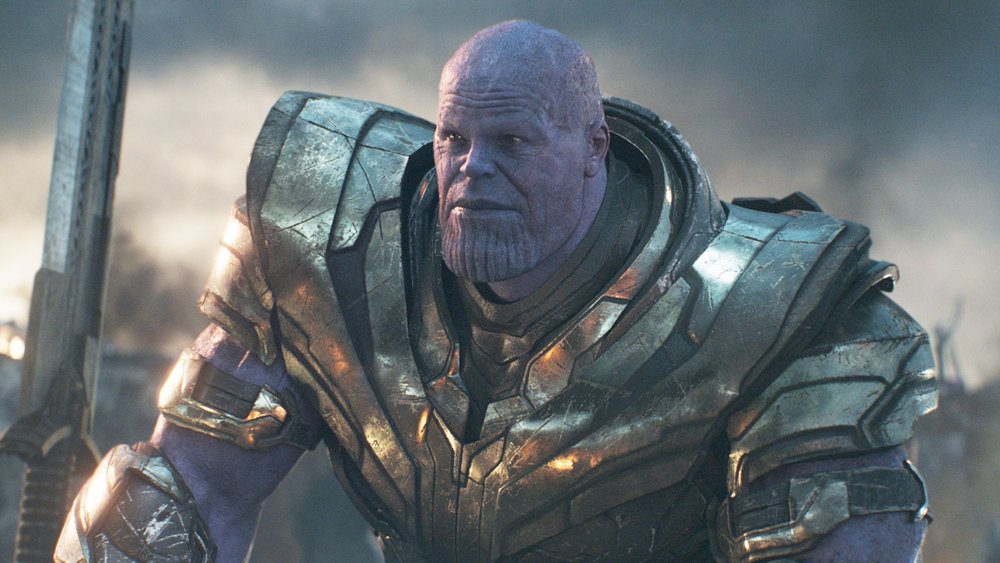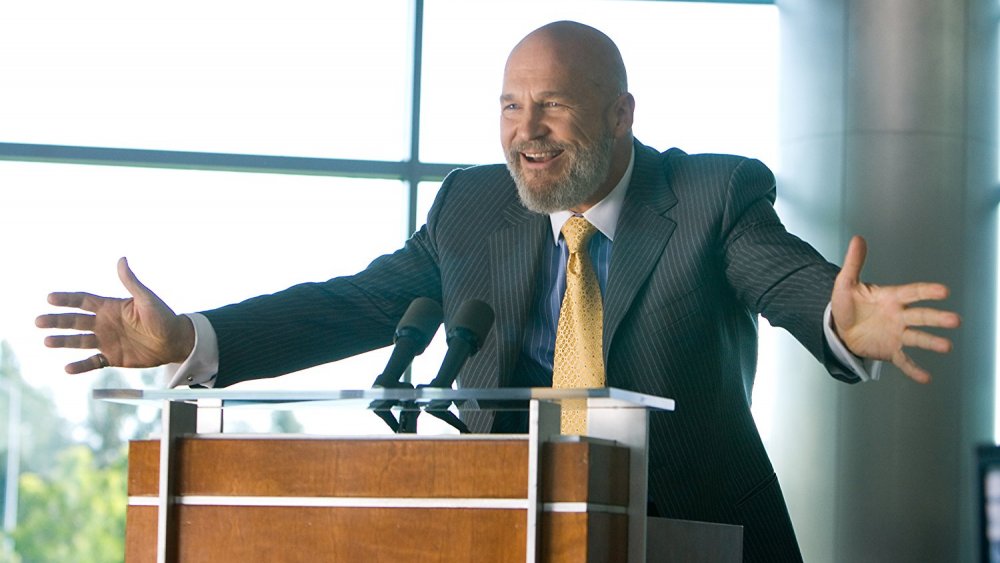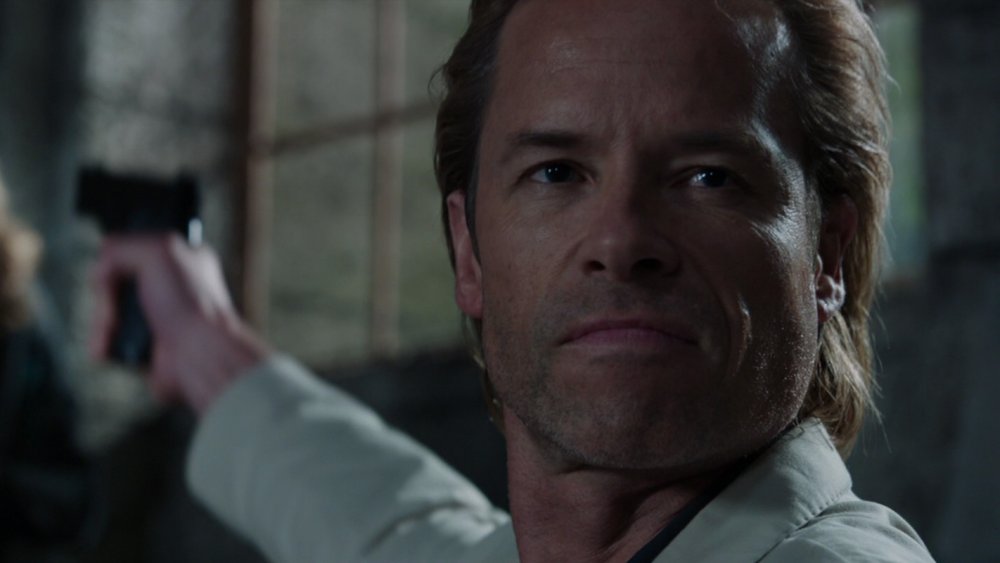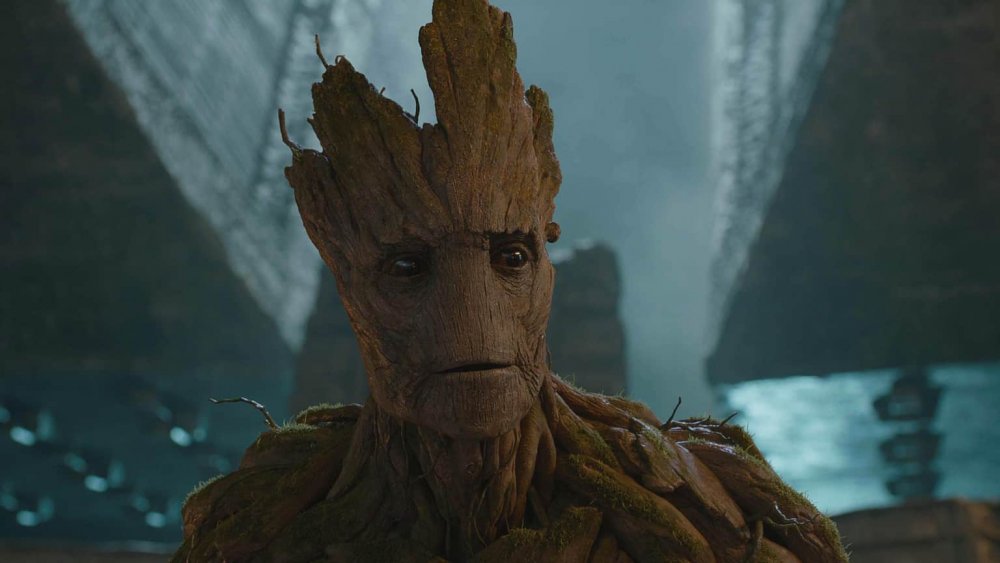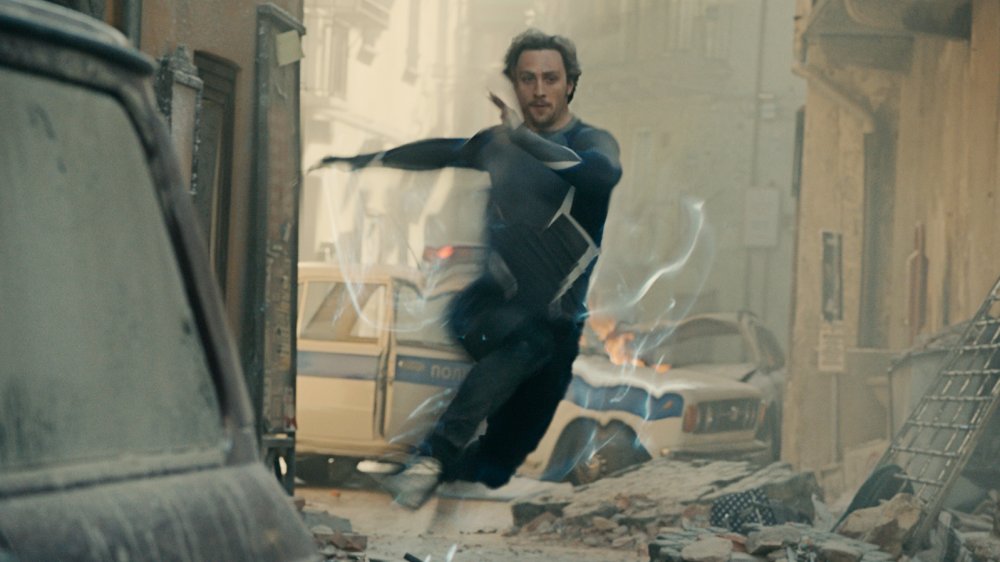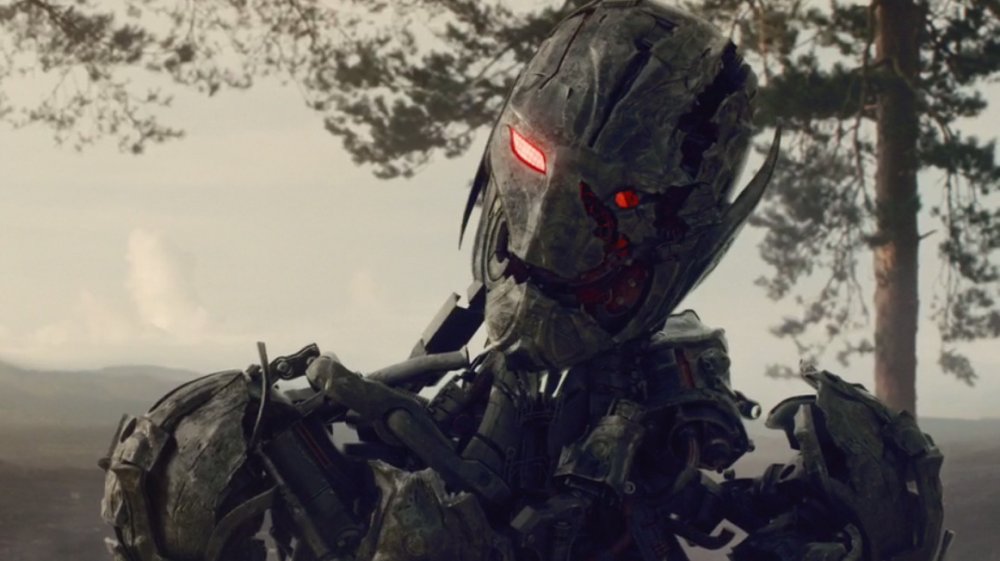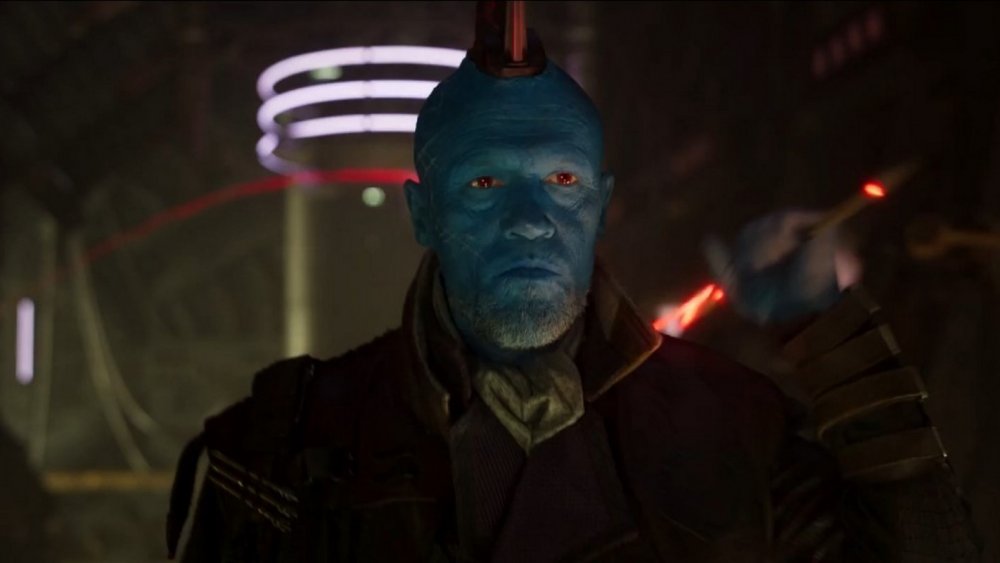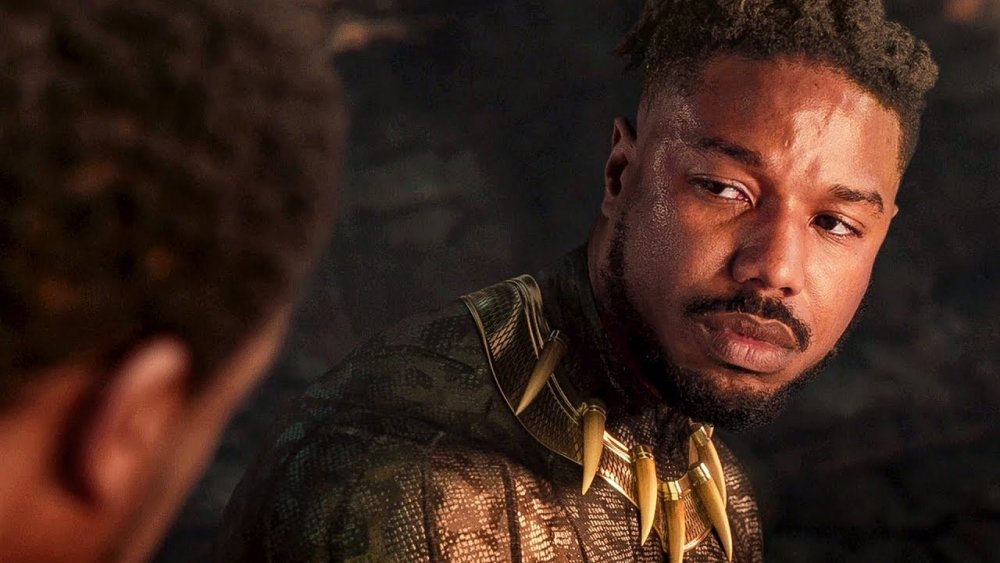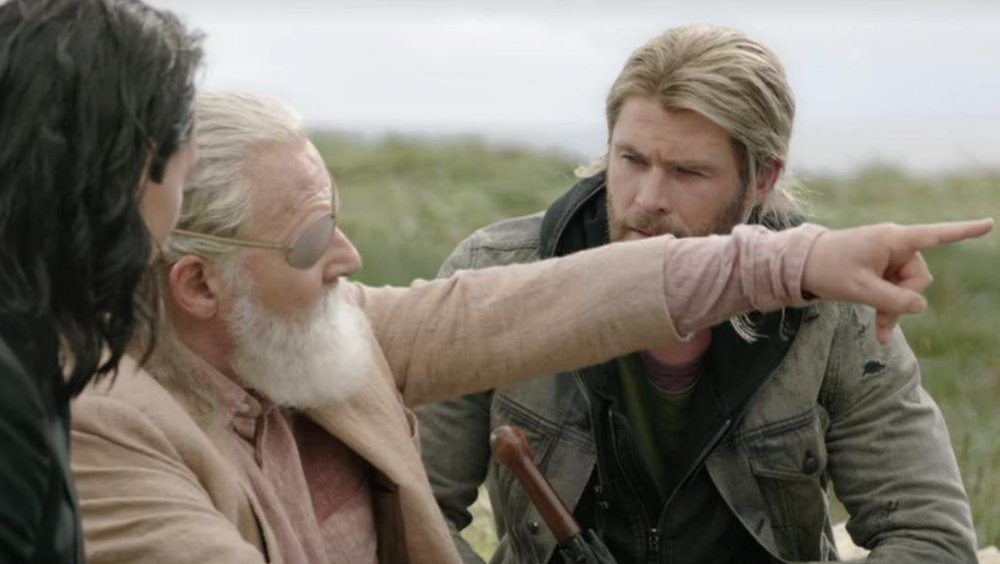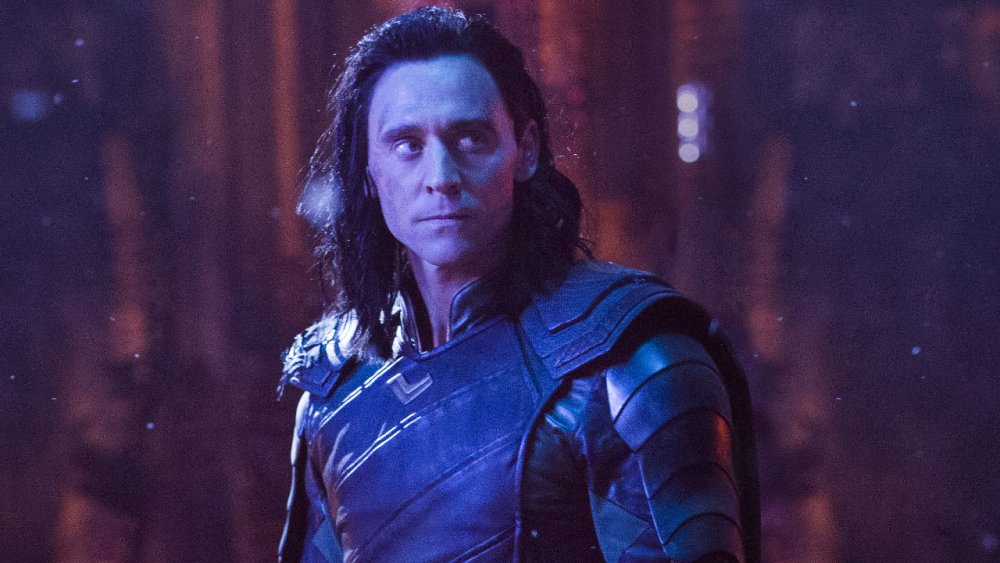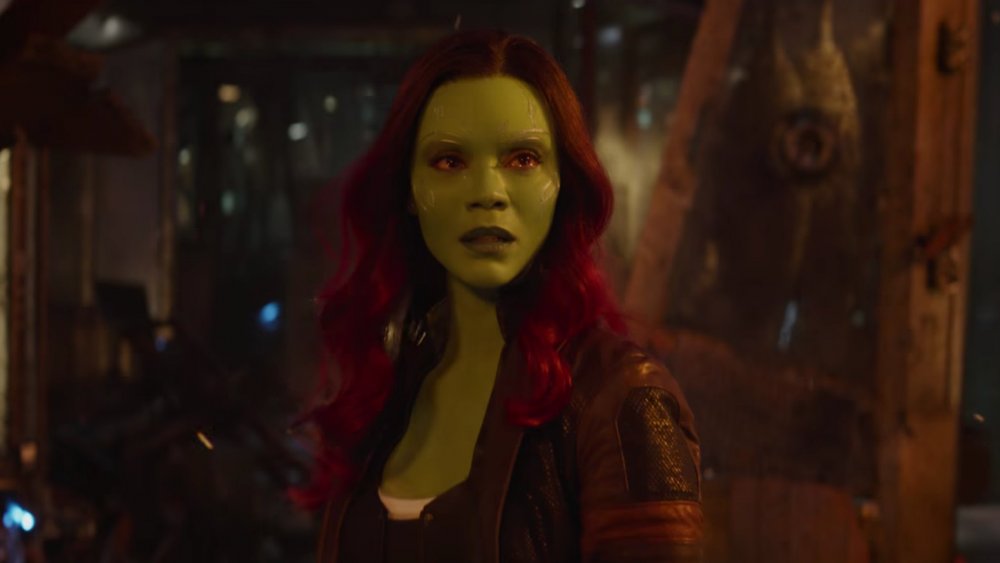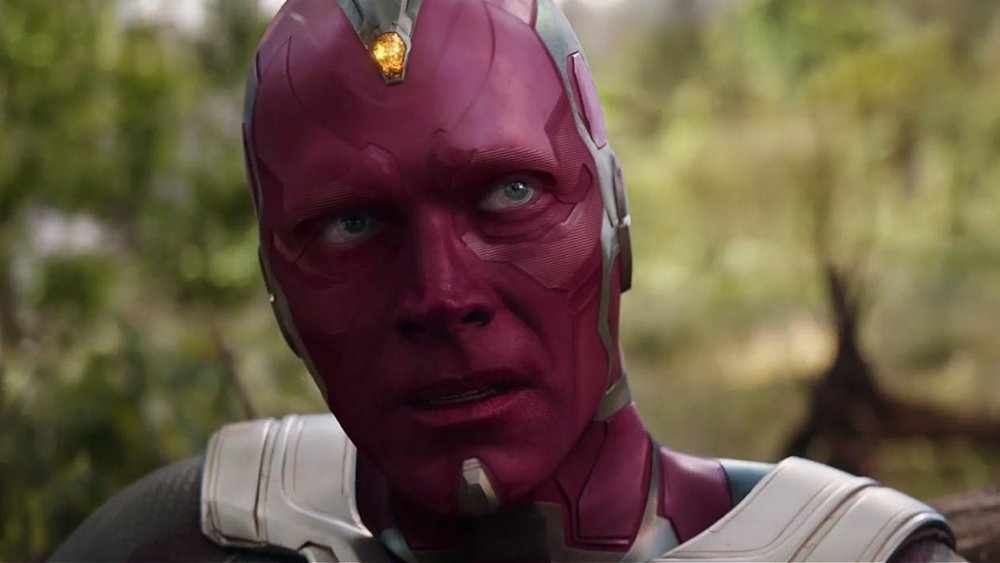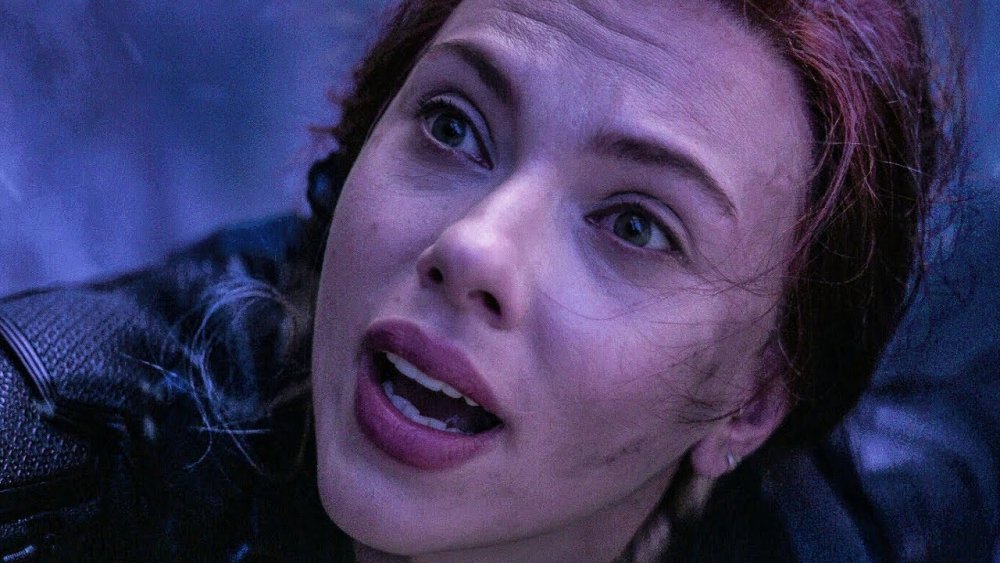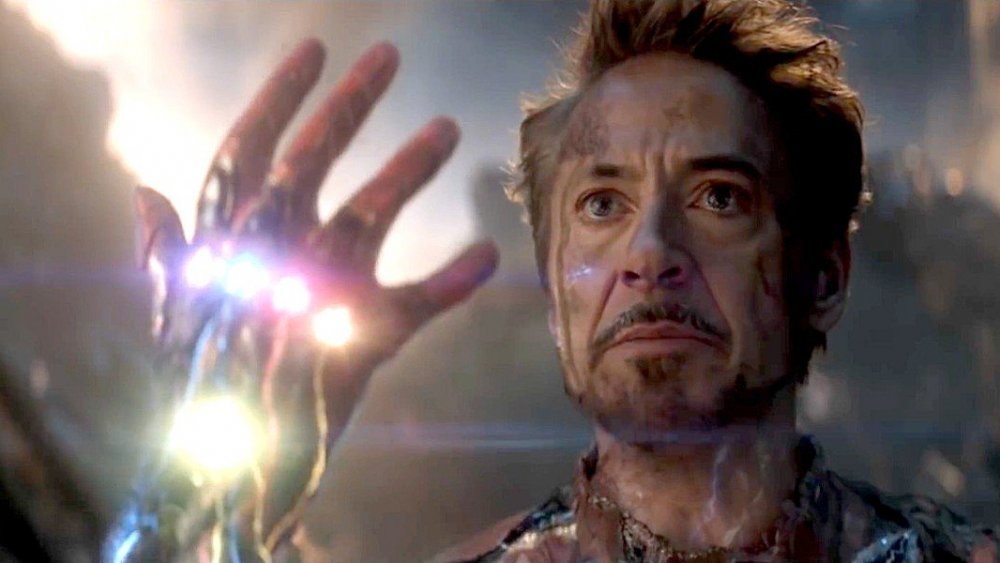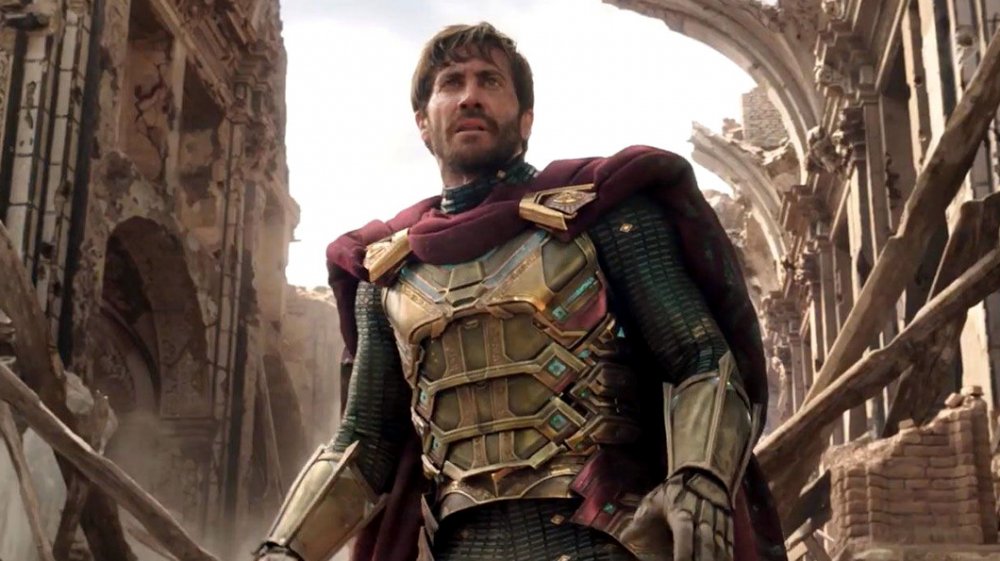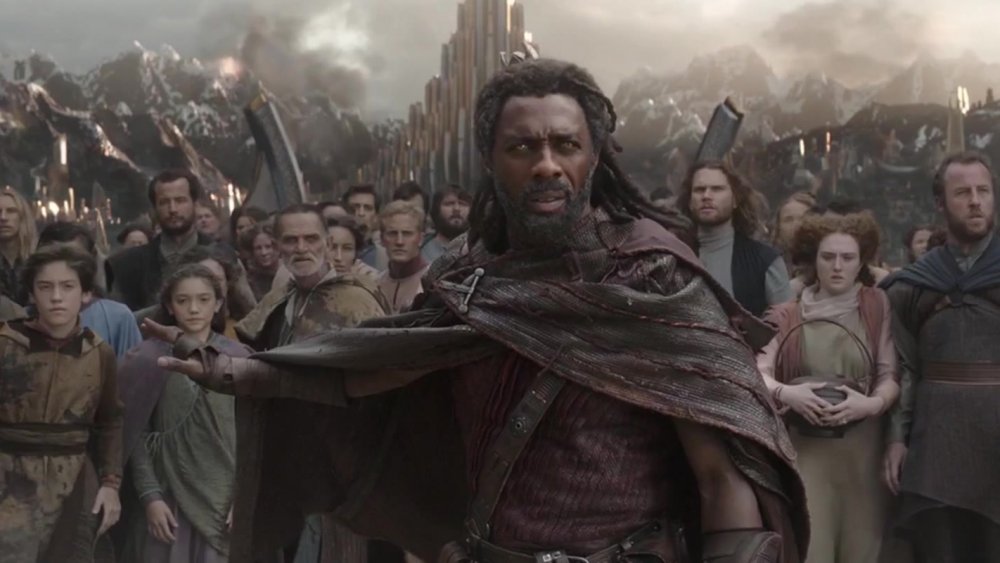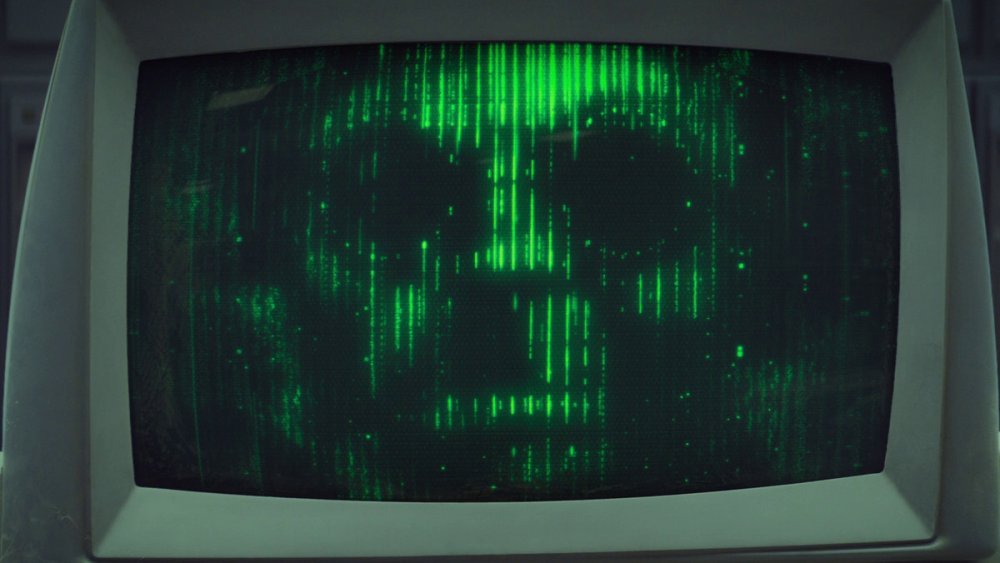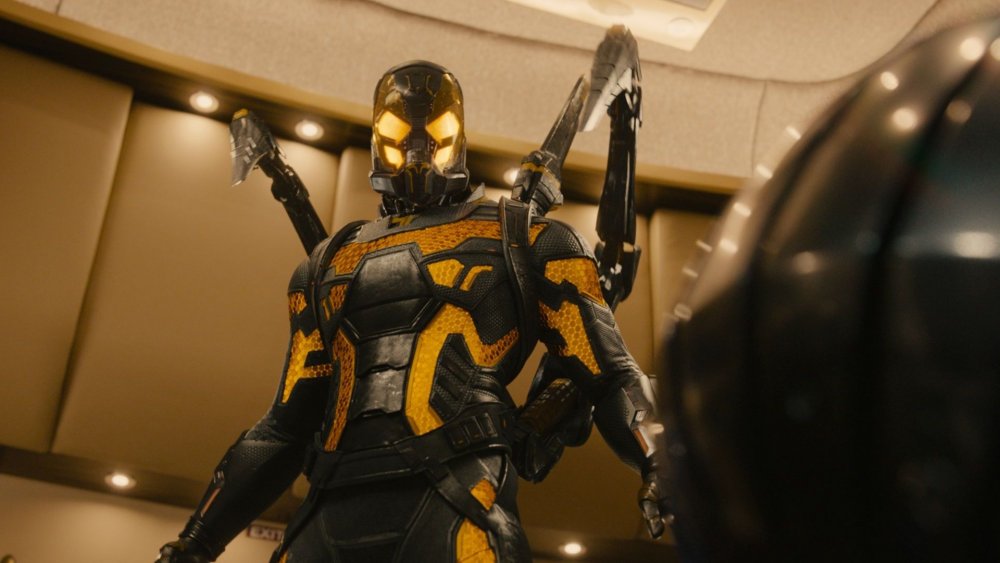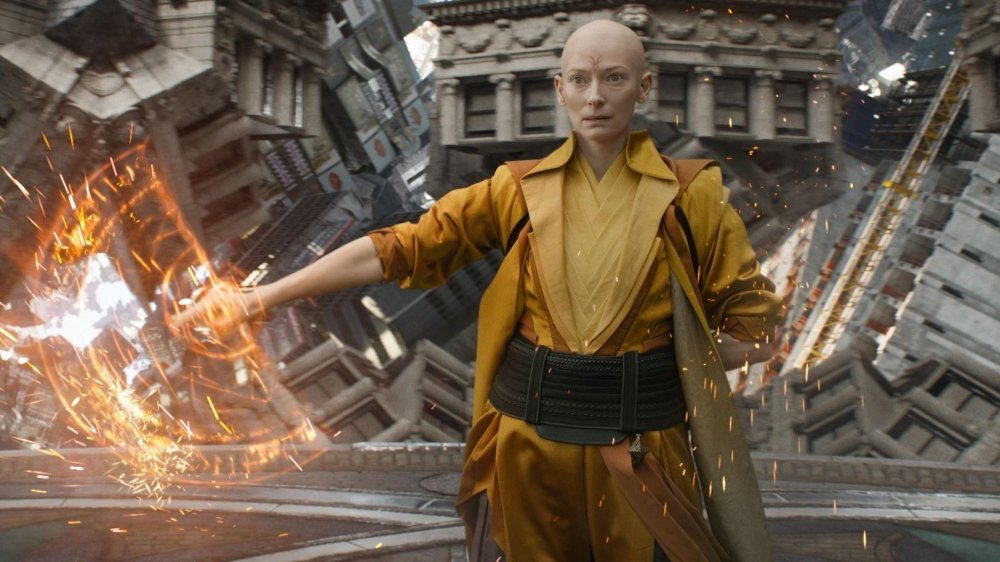The Last Words Of Every Fallen MCU Hero And Villain
The Marvel Cinematic Universe is, by and large, a fairly fun place to hang out if you're a fan of superhero stories. In many cases, the MCU is defined by its lightheartedness, its ability to combine adventure storytelling with humor, and its relative lack of high-stakes blood and death compared to certain other genre franchises. Even if that doesn't hold true for every film in the series, the MCU is known as a fun entertainment entity that's generated billions at the worldwide box office.
But of course, that doesn't mean it's free of tragedy. The MCU has also seen its fair share of death over the course of its many films, whether those deaths came to supervillains who had it coming, superheroes who died selflessly, or allies who were just trying to help out amid a crisis. Each of these deaths lands with their own set of emotional circumstances and payoffs, as well as their own meaningful last words, which is what we're here to talk about now. These are the last words of every fallen MCU hero and villain, not counting voice recordings or time-travel shenanigans.
(Obviously, we're spoiling the entire MCU.)
Obadiah Stane's last words took aim at Tony Stark
The first major villain to fall in the MCU was Obadiah Stane, all the way back in Iron Man, the film that started it all. When we first meet Stane, he's presenting himself as Tony Stark's lifelong friend and business advisor, but as the film goes on, it becomes clear that Obadiah is really unhappy that the wunderkind of Stark Industries has survived his trip to the desert. Latching on to Tony's own arc reactor technology, he becomes the Iron Monger with a massive armor rig of his own, hellbent on killing Tony and reclaiming the company for himself to make a fortune with weapons. In a final showdown, just before Tony finally gets the upper hand, Obadiah offers some prophetic final words.
"How ironic, Tony. Trying to rid the world of weapons, you gave it its best one ever. And now, I'm gonna kill you with it."
Okay, so his actual last words come a second later when he gets mad about Tony ripping out his suit's targeting system ("Hold still, you little p***k"), but these are the words that stick with you. In many ways, Tony Stark spends the rest of his time in the MCU grappling with his own legacy, trying to use his brain to protect the world even as his hubris keeps causing problems. In other words, Stane knew Tony better than Stark wanted to admit.
Aldrich Killian went out big, boastful, and totally wrong
It took three Iron Man films before one of the character's most famous comic book villains, the Mandarin, was finally brought to the MCU ... sort of. For much of the film, the Mandarin appears as a captivating and deadly terrorist in a series of video messages, which later turn out to be the work of a drug-addled actor hired by the film's real mastermind, vengeful scientist Aldrich Killian.
As the film progresses, Tony Stark learns that Killian and his Extremis compound are the real threats, and the two clash in a fiery showdown at the end of the movie, one that sees Tony destroying all of his Iron Man suits and Killian proving himself to be very nearly unkillable. Before he finally dies, courtesy of an explosion triggered by Pepper Potts, he shouts, "I am the Mandarin!"
It's a boastful declaration of Killian's supposed dominance over Stark, which turns out to be wrong. It's also an amusing tease for what's to come. Marvel has since revealed that there's actually a real Mandarin out there in the MCU, and that he'll be making his debut in the upcoming Shang-Chi and the Legend of the Ten Rings. So, in the long run, Killian was quite wrong indeed.
Groot made us all cry with his last words
Before Guardians of the Galaxy debuted on the big screen, skeptics wondered if the group of cosmic oddballs could possibly have the same blockbuster success as Marvel's more established heroes, particularly since the team included characters like a talking tree named Groot. Then the movie came out, and for many fans, Groot wound up being the emotional core of the whole piece.
Despite only saying three words throughout most of the film — "I am Groot," repeated over and over with various inflections — he proves himself to be a loyal friend, a kind hand when it's called for, and a powerful warrior when villains threaten his friends. This all reaches its apex in the climactic scene of the movie, when the Guardians are trapped on a crashing spaceship that's set to send them to their deaths. Groot sees an opportunity to save his friends and forms a leafy cocoon around them to cushion the impact, despite knowing it will kill him. When his best friend Rocket tries to stop him, the talking tree simply says, "We are Groot."
It's a powerful moment of unity and love, and though a version of Groot still exists in the MCU, the original Groot is gone. Guardians of the Galaxy writer/director James Gunn has confirmed that the current Groot is the old Groot's "son," meaning that act of sacrifice was a permanent, devastating goodbye.
Pietro Maximoff left the MCU as cocky as ever
By 2015, the Marvel Cinematic Universe was a well-established place where heroes didn't really die all that much. Sure, some of the supporting cast did, and sometimes by the end of the film, we'd lose a villain or two, but if you were a bona fide superhero, you were probably safe. That seemed especially true if you were a new member of a superhero team. However, that all changed with Avengers: Age of Ultron.
Age of Ultron introduced two new members to Earth's Mightiest Heroes — Wanda and Pietro Maximoff, Sokovian twins who were initially set up as villains until they saw the error of their ways and joined the Avengers to battle Ultron at the end of the film. While Wanda has since gone on to become an increasingly vital member of the MCU with more stories still to come, writer/director Joss Whedon chose Ultron's final battle to prove that superheroes aren't always safe.
In the midst of protecting a group of civilians and the Avenger Hawkeye, Pietro Maximoff steps in front of a spray of bullets, and when Hawkeye sees the sacrifice he just made, the young speedster responds, "You didn't see that coming." It's both a nod to the character's former boastfulness and a nod to the audience, who really didn't see that coming.
Ultron's last words were loaded with cynicism
Avengers: Age of Ultron is a film that spends a lot of time focusing on the hubris of superheroes and, in particular, the hubris of Tony Stark. After triumphing as Iron Man and becoming a key figure in the founding of the Avengers, Tony has fallen back on his old weapon-making ways, but this time, he has a new purpose. He wants to build "a suit of armor around the world," and in the process, he accidentally creates Ultron, a murderous artificial intelligence that decides the key to saving Earth is actually destroying humanity.
After coming to terms with his mistakes, Stark and the rest of the Avengers are able to fight Ultron off, and new member Vision is left to dispatch the last remaining Ultron bot. As Ultron tries to convince Vision that humanity is doomed regardless of what the heroic android does, Vision acknowledges that may be true. Ultron responds, "You're unbearably naive." Vision quips, "Well, I was born yesterday," and then he destroys Ultron for good, but not before the A.I. was able to leave us with a parting shot that suggests the Avengers might not be as wise as they hope they are.
Yondu finally made things right with Star-Lord
Guardians of the Galaxy introduced a number of new characters to the MCU, many of whom fell into a kind of gray area that was later clarified. One of those characters was Yondu Udonta, the alien mercenary who abducted young Peter Quill from Earth and then raised him among his own crew.
When Yondu was first introduced, he was depicted as a ruthless and rather cruel and domineering figure in Peter's life. By the time of Guardians of the Galaxy Vol. 2, though, we learned that Yondu was actually exiled from his Ravager tribe for child trafficking, which in actuality turned out to be what saved Peter's life after Yondu discovered Peter's real father, Ego, was killing all of his children from around the galaxy.
Though he spent most of his life hiding it, Yondu loved Peter like a son, and that's something he finally confesses during an act of self-sacrifice that saves Peter from the vacuum of space. Before Yondu's death, he makes it clear what he really felt for Peter all along. "I'm sorry I didn't do none of it right. I'm damn lucky you're my boy."
Yondu's act of heroism also helps to bring about his redemption, represented by an honorable Ravager funeral at the end of the film. In finally declaring his love for his adoptive son, Yondu made Guardians of the Galaxy's message of the importance of found family even clearer.
Erik Killmonger was a villain who died a heroic death
Marvel Cinematic Universe villains exist on a rather broad scale of relatability. While some of them are simply world-conquering tyrants, others appear much more sympathetic, and some turn out to actually make very good points. Erik Killmonger, the villain of Black Panther, fits into the latter category as perhaps the MCU's most human antagonist.
Killmonger is a Wakandan by birth, but he was raised in America after the death of his disgraced father. He grew up to become a smart, fierce warrior, and saw firsthand the injustices of the world around him. It was those injustices that he sought to remedy by seizing control of Wakanda's vast power and wealth and using it to reshape the world in its image through force of conquest. After years of isolation, Killmonger sought to take Wakanda violently out into the world and prove the superiority of his ancestors.
In Black Panther, this culminates in a showdown between Killmonger and T'Challa in which the two men are very evenly matched. Despite his grudging respect for his cousin, T'Challa ultimately defeats Killmonger and walks him out to see a Wakandan sunset for the first time. T'Challa is so overcome with emotion that he even offers to try and heal Killmonger, and that's when Erik gives the last in a long line of profound observations throughout the film: "Just bury me in the ocean, with my ancestors that jumped from the ships, because they knew death was better than bondage."
Odin left his sons with a little bit of wisdom
Odin, the Allfather of Asgard, has a complicated relationship with the MCU and a particularly complicated relationship with his sons, Thor and Loki. At various points in the three Thor films, he's an antagonist, an ally, a wise advisor, and an old fool. By the time of Thor: Ragnarok, he's been deposed and depowered by his son, forced into exile on Earth, and aware that the daughter he'd hidden away is coming to wipe out his kingdom.
Still, in his final scene, Odin shows a lot of wisdom and perspective. Talking to his sons, he makes the vital point that Asgard is not a place but a people, and that Thor and Loki must do whatever they can to lead them. As he sits on a cliff in Norway, pointing at the ocean, he leaves them with, "I love you, my sons. Look at that. Remember this place. Home."
With that, Odin fades away, leaving Thor in particular with the burden of a legacy he's not sure he's ready to carry forward, something which will inform the god of thunder's next MCU adventures.
Loki went from MCU villain to Infinity War hero
Numerous MCU characters who've been around since the early days have taken quite an evolutionary leap, but perhaps none so pronounced as Loki. The god of mischief first debuted in Thor, and in the years since, he's been everything from an all-out villain to a reluctant antihero to a seemingly redeemed good guy to an actually redeemed good guy. It's quite a journey, but for the original version of Loki, it all came to an end at the beginning of Avengers: Infinity War, when his tricks finally ran out against Thanos.
After trying to deploy one of his enchanted hidden blades against the Mad Titan, Loki finds himself with Thanos' hand around his throat. With no more options and no more tricks up his sleeves, Loki has no choice but to watch helplessly as Thanos strangles him. He does, however, get in one last dig with, "You will never be a god."
This, of course, is Loki's attempts to bruise Thanos' ego because he's convinced that his brother Thor will eventually stop Thanos in his tracks. The irony, though, is that by the end of Infinity War, Thanos is every bit a god thanks to all of those Infinity Stones. Of course, we're also living in a universe where the tables have turned, and now, Thanos is dead, and an alternate version of Loki is running around, causing mischief. So while OG Loki offered up some defiant final words, we're sure to hear quite a few quips from the 2012 version who's now zipping around the cosmos.
Gamora's last words were full of fear and pain
The assassin turned Guardian of the Galaxy known as Gamora had a rough childhood, to put it mildly. After half the people on her planet were slaughtered by Thanos, the Mad Titan saw promise and determination in her and adopted her as his own. Then came years of torturous training and ruthless manipulation that she was only able to break when she left Thanos for the Guardians.
Sadly, when father and daughter meet again in Avengers: Infinity War, all of her pain comes rushing back. These emotions come to a head on Vormir, where Thanos learns he has to sacrifice something he loves if he's ever to get his hands on the Soul Stone. And the thing he loves turns out to be Gamora. At first, when she sees tears in Thanos' eyes, she thinks it's because he knows his lack of love is now his downfall. Then she realizes he's weeping for her now and says, "No. This isn't love."
Thanos, with tears still in his eyes, apologizes as he throws his daughter to her death. He gets the Soul Stone, confirming that he did indeed love Gamora in his own abusive and twisted way, adding another complex layer to the MCU's most powerful villain yet. Of course, while original Gamora died with fear in her voice, we'll thankfully get to hear more from the assassin as her 2014 version is still alive and well.
Vision's last words were full of love
All the potentially world-ending catastrophes in the MCU don't necessarily leave a lot of time for romance, but a few powerful love stories have still popped up along the way. One of them, which developed sometime between Captain America: Civil War and Avengers: Infinity War, is the love between Wanda Maximoff and Vision. Though he's an android and she's a human, they're bonded in no small part by their shared experience as outsiders and by their mutual struggle of coming to terms with powers they don't fully understand.
This comes to a devastating head in Avengers: Infinity War when, in an attempt to save the universe from Thanos, Vision asks Wanda to destroy the Mind Stone in his head and kill him. As Wanda focuses in, prepared to do the unthinkable, Vision tells her, "I just feel you."
It's both a callback to their love scenes from earlier in the film and an indication that Vision is not only willing to die but willing to grant Wanda one last declaration of love as he goes. He doesn't blame her. In fact, he's grateful for her, and right before the Mind Stone is destroyed, he whispers, "It's all right. I love you."
Natasha Romanoff wiped the red out of her ledger
Though we first met her in Iron Man 2, Natasha Romanoff's backstory wasn't really fleshed out until The Avengers, when her past as an assassin crept into the light a bit and created a portrait of a woman looking for redemption. As she put it, she had "red in her ledger," and she was eager to do whatever she could to wipe it all out. It's something she struggled with throughout her time in the MCU, and it's why when Avengers: Endgame begins, she's still devoted to staying at the Avengers compound and protecting the world in any way she can, even when most of her friends are gone.
It's also why her death comes on Vormir, during an attempt to find the Soul Stone in the past before Thanos can get his hands on it. Natasha and Clint Barton travel to Vormir together, and they both feel the need to atone for darkness in their past, so much so that they fight over who will die to claim the Stone. Natasha wins that fight, and as Clint pleads with her, she replies, "Let me go. It's okay."
She forces Clint to let her go, ending her time as an Avenger as a hero, the first of the original six to die, and with a clear ledger. And yeah, she's got a lot more lines in her solo movie, but since that's a prequel, it's all just set-up for her dramatic sacrifice.
When it comes to last words, Thanos and Tony Stark were connected in death
Avengers: Endgame mostly focuses on the surviving members of the title team as they go on a trip through time to seize the Infinity Stones before Thanos can get them, thereby taking his power and using it to undo what happened in Infinity War. Along the way, through a quirk of Nebula's cybernetics, the Thanos of the past discovers what's going on and decides to intervene. This all culminates in a massive battle at the Avengers Compound, with both sides trying to regain control of the Stones.
For a moment, it seems Thanos has won yet again, and he declares, "I am inevitable." When he snaps, though, nothing happens, because Tony Stark chose that moment to seize the Stones himself. It's then that the godfather of the MCU, the person who set everyone on the path, utters his own final words: "And I am Iron Man."
Tony snaps, Thanos fades away, and a few moments later Tony is also dead. Together, their intertwining final words reveal what happens when a reluctant hero takes the one chance necessary to save everything at great risk to himself, and what happens when an arrogant villain is convinced of his own righteousness.
Quentin Beck gave Peter Parker a timely warning
Spider-Man: Far From Home works pretty well as a standalone Spider-Man adventure, but because it's also the first MCU film after Avengers: Endgame, it spends a lot of its runtime with a dual purpose. It grows Peter Parker's story, yes, but it also grows the way the MCU looks in the wake of Endgame and, of course, the death of Tony Stark. These themes arrive in a literal manifestation thanks to Quentin Beck, a seemingly benevolent figure who turns out to be a former Stark employee with a grudge.
Beck uses his mastery of illusion technology to cast himself as Mysterio, a hero to the world who's in reality a madman hell-bent on seizing Tony Stark's legacy. Though Peter initially believes he's on the right side, he finally uncovers Beck's scheme, and in the resulting showdown, Beck is killed. As his breathes his last, he warns Peter, "People need to believe, and nowadays ... they'll believe anything."
This is a statement that proves prophetic, as the end of the film reveals that Mysterio's team has released a video that makes Spider-Man look like Beck's murderer.
Thor's friends and foes all went out with some pretty dramatic lines
Of all the Marvel franchises that kill of major characters, Thor seems to have the highest body count. For example, in the first film, the ice giant Laufey makes this malevolent proclamation to a comatose Odin: "It's said you can still hear and see what transpires around you. I hope it's true, so that you may know your death came at the hand of Laufey." Then he's killed by his own biological son, Loki, as proof of the god of mischief's loyalty to Odin, which he will of course use to his advantage later.
Thor: The Dark World claims the life of Thor's mother, Frigga. When Malekith shows up looking for the Aether, he demands to know it's location. And before the Dark Elf kills her, Frigga defiantly claims, "I'll never tell you." Then, Malekith himself dies while declaring, "The Aether cannot be destroyed," a prophetic declaration of its future use as an Infinity Stone.
But when it comes to Asgardians kicking the bucket, it doesn't get any grislier than Thor: Ragnarok. All of the Warriors Three meet their fate at the hands of Hela, the goddess of death, when she returns to claim her throne. Volstagg defiantly asks, "Who are you? What have you done with Thor?" And then he's stabbed to death. Fandral lets loose with a guttural scream before, yep, he's stabbed to death. And finally, Hogun snarls, "Go back to whatever cave you crept out of, you evil demoness," before ... well, you know.
The deaths don't stop here, though. Skurge declares, "For Asgard," and then he sacrifices himself in battle for his people, while Hela shouts one final "No!" when she realizes Surtur is about to kill her. Then, in Avengers: Infinity War, Thor's best friend, Heimdall, defies Thanos and activates the Bifrost while praying "Allfathers, let the dark magic flow through me one last time."
Captain America's enemies talk a whole lot
Steve Rogers spent several years of his revived life in the 21st century believing that his friend Bucky Barnes was dead. Well, it turns out Bucky was very much alive, living a brainwashed life as an assassin, but that doesn't meant there aren't some other memorable deaths in Cap's films.
For example, in Captain America: The Winter Soldier, Steve discovers that former HYDRA operative Arnim Zola has actually been kept alive long after his natural lifespan as a living computer. Before he's destroyed by a S.H.I.E.L.D. missile, Zola tells Steve, "We are both of us out of time."
Then there's Alexander Pierce, the supposedly benevolent World Security Council member who turns out to have been a secret HYDRA operative for decades. Even as he dies, having been defeated by Steve and Nick Fury, he declares, "Hail HYDRA."
In Captain America: Civil War, the HYDRA traitor Brock Rumlow reveals that he didn't actually die in Winter Soldier, and before he detonates a suicide bomb, he passes along these words to Steve as a taunt over Bucky: "He said to me 'Please tell Rogers when you gotta go, you gotta go.' And you're coming with me."
Rumlow turns out to be wrong, but it still rattled Cap.
The last words of assorted MCU villains
While the heroes tend to mostly survive in the MCU, quite a few villains have met their end along the way, leaving their opponents with parting words.
At the end of Iron Man 2, Ivan Vanko goes out with a bang. As he detonates an army of drones around him, the Russian villain looks at Tony Stark and simply says, "You lose." Tony and his friends survive, but the incident leaves Tony once again questioning his own place as a hero.
Then there's Ulysses Klaue, the secondary villain in Black Panther, who meets his end at the hands of Erik Killmonger. Just before Klaue dies, Killmonger pulls down his lip and reveals a Wakandan War Dog tattoo. As a result, the South African arms smuggler expresses amused surprise, telling Killmonger, "Ah, to think I saw you as some crazy American," foreshadowing Killmonger's upcoming takeover of Wakanda.
Then there's Darren Cross, the villain from Ant-Man, who put on the Yellowjacket armor and launched a full-scale fight against Scott Lang in his daughter Cassie's bedroom. Just before his death, Cross turns to Cassie Lang and declares, "You have to help Daddy pay for his mistakes," a nod to Lang's criminal past, as well as Cassie's own possible superhero future.
The final words of the MCU's cosmic and magical characters
The MCU has become a strange and magical place, and as a result, the franchise is full of cosmic and magical figures we've lost along the way.
For example, there's Ronan the Accuser, the hammer-wielding villain of Guardians of the Galaxy. When the Kree zealot faced off against Star-Lord, he expressed shock when Peter Quill and his friends were able to hold an Infinity Stone, crying, "You're mortal! How?!"
This foreshadowed the revelation in Guardians of the Galaxy Vol. 2 that Peter was actually half-Celestial. His father, Ego the Living Planet, had passed his power on to him, but when Ego planned to use that power to take over the entire universe, Peter gave up his godlike status, leading Ego to warn him, "If you kill me, you'll be just like everybody else."
It turns out that's what Peter wanted all along.
Then there are the heroic figures from the more far-out realms of Marvel that we've lost. In Doctor Strange, the Ancient One contemplated the nature of death in a rather poetic way before her own passing, saying, "You'd think after all this time I'd be ready. But look at me. Stretching one moment out into a thousand ... just so that I can watch the snow."
Then, in Captain Marvel, the Kree scientist Mar-Vell warned Carol Danvers of her impending destiny as a hero, even as she tried to hold off a Kree assassin. "You gotta save them without me. Now, I gotta blow this engine before they find it." This set up both Carol's future with the Skrulls and her powers, which came from said engine.
